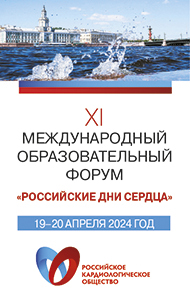Renin-angiotensin system blockers underprescribed after ACS
Approximately one in five eligible patients hospitalized for ACS do not receive guideline-recommended ACE inhibitor or angiotensin receptor blocker therapies.
Guidelines from the American College of Cardiology and American Heart Association strongly recommend initiation and indefinite continuation of an ACE inhibitor or angiotensin receptor blocker in all patients recovering from ACS who have left ventricular ejection fraction ≤40%, hypertension, type 2 diabetes or chronic kidney disease (CKD). The guideline also states that ACE inhibitor or angiotensin receptor blocker therapy is reasonable and should be initiated in patients recovering from ACS who do not have any of the aforementioned risk factors.
“In an era where secondary prevention is paramount after ACS, it becomes imperative to ensure that appropriate medical therapy is initiated before discharge. Thus, additional quality improvement efforts focused on the use of [ACE inhibitor/angiotensin receptor blocker] therapy are warranted,” Kevin R. Bainey, MD, MSc, of Mazankowski Albert Heart Institute at University of Alberta, Edmonton, Canada, and colleagues wrote.
Previous research demonstrated that a minority of patients recovering from ACS received an ACE inhibitor or angiotensin receptor blocker at discharge, so the researchers performed an observational analysis to examine prescription rates, temporal trends and factors that affect the use of these therapies. The study included 80,241 patients admitted with ACS and discharged from 311 hospitals participating in the Get With The Guidelines – Coronary Artery Disease Program from 2005 to 2009.
Of the 60,847 patients with LV dysfunction and history of HF, hypertension, diabetes or CKD, 81.7% received an ACE inhibitor or angiotensin receptor blocker at discharge.
Moreover, the rate of ACE inhibitor and angiotensin receptor blocker prescription increased during the study period, from 76.7% in 2005 to 84.6% in 2009.
In-hospital CABG (adjusted OR=0.55; 95% CI, 0.48-0.63) and renal insufficiency (adjusted OR=0.58; 95% CI, 0.52-0.64) were independently associated with lower ACE inhibitor and angiotensin receptor blocker use. Lower rates of ACE inhibitor and angiotensin receptor blocker use after CABG are “a persistent care gap that requires immediate attention,” and recent research has shown that ACE inhibitor/angiotensin receptor blocker use after CABG is associated with improved clinical outcomes, the researchers wrote.
“Current evidence clearly supports the use of renin-angiotensin inhibitors in halting the progression of CKD,” but physicians may be reluctant to prescribe them to patients with renal insufficiency “possibly because of the concerns of worsening renal failure and potentiating hyperkalemia,” researcher Deepak L. Bhatt, MD, MPH, executive director of interventional cardiovascular programs at Brigham and Women’s Hospital Heart and Vascular Center and Cardiology Today’s Intervention chief medical editor, and colleagues wrote. “Still, the risk is extremely low especially if the [glomerular filtration rate] is >40 mL/min per 1.732 and potassium is in the normal range.”
Disclosure: The Get With The Guidelines – Coronary Artery Disease Program is supported in part by an unrestricted educational grant from Merck/Schering-Plough and Pfizer. See the full study for a list of the researchers’ relevant financial disclosures.
Source: www.healio.com






